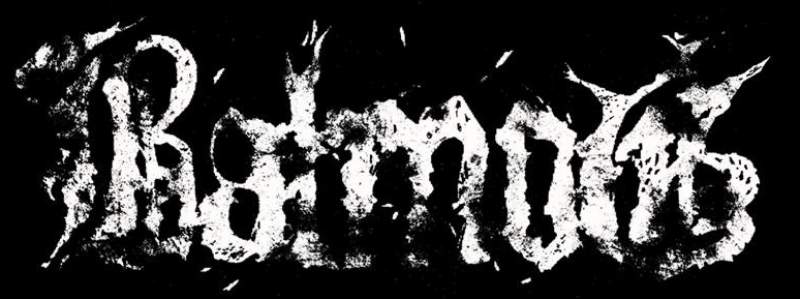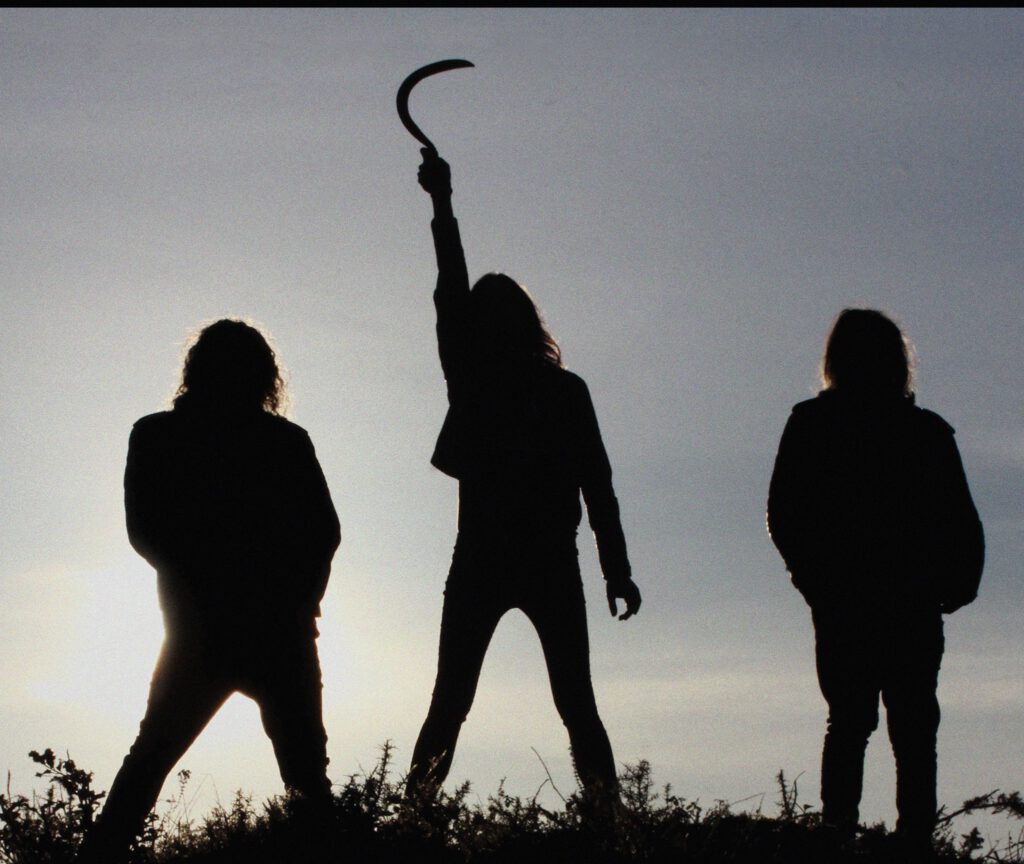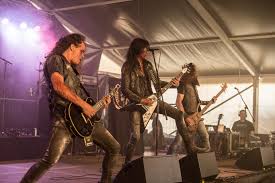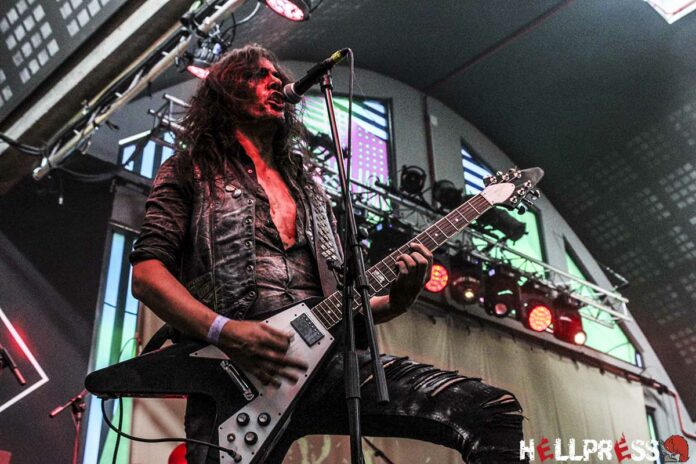
1. What does the title Laio signify, and how did you arrive at it?
Laio is a word from our language, Galician, which means cry or lament. We thought it was a good title and one that defined the essence of this album. Laio isn’t a concept album, but it’s true that in general, behind all the lyrics, there’s a certain vision of rebellion and attack on the divine, and in some way, a cry represented that principle of rebellion very well. We also wanted the title to be short, direct, and if possible, in our language, so it’s perfect.
2. What central themes or concepts did you explore on this album?
As I said, this isn’t a concept album, but there’s a common thread running through all the lyrics: this attack on the divine and creation itself; the rekindling of the fire of rebellion that exists within every human being and that can create, destroy, and transform outside of divine will.
3. How does Laio differ musically and emotionally from your previous releases?
Good question. I think, on the one hand, there’s a certain difference from previous albums, as Laio has a clearly defined identity. But on the other hand, Laio is a compilation of elements from many previous albums which means Laio couldn’t exist without them. In a way, each of the previous releases forms the foundation upon which Laio has been built. It’s easy to draw connections with EVE, Vacvvm, or even Svmma Fide. Some have even linked it to our first album, Testimony of the Abominable. Overall, you could say this album is more aggressive than EVE, while retaining the dark atmosphere of our previous album.

4. Was there a specific vision or atmosphere you aimed to create with Laio?
When we started writing, we were clear that we were looking to combine a bit of EVE’s more oppressive atmosphere with a more aggressive touch, revisiting the violence perhaps felt in Vacvvm or Svmma Fide. That was the general idea that took shape in the different songs, but the truth is, I think each song has its own atmosphere. I think all of Laio’s songs have a lot of personality, but they always seek that constant balance between aggression and atmosphere, which I think is a bit of Balmog’s hallmark throughout all these years.
5. Can you describe the songwriting and recording process for the album?
The songwriting started after the Eve recording sessions. We always try to do it this way, that is, start writing after recording an album, because we can start from a very broad perspective; the album is very fresh in our minds, and it’s a good starting point to move forward. Laio was no exception; it started to take shape after EVE. As for the recording process, it was very positive. In fact, we left a lot of room to add more elements in the recording studio. All the keyboards, textures, solos, vocal changes, arrangements—everything was created in the studio itself; we didn’t have anything. It’s risky, but we knew from experience that we could do it. We’ve always been very creative in the studio. When we record, many creative doors open for us, and we come up with many things that would be impossible in the rehearsal room, so we experiment a lot during the recording sessions.
6. How much of Laio was shaped by improvisation versus structured composition?
As I said in the previous one, we usually start writing a new album as soon as we finish the previous one, and Laio was no exception. Right after recording EVE, we started working on some riffs and ideas, and a bit on the overall idea for the album. In that period immediately after EVE, we wrote a couple of songs, which I think were Mud to Gold and Tongue in Pieces. During that process, ideas started coming up that maybe didn’t quite fit, so the idea of making Covenants of Salt, the follow-up to Pillars of Salt, wasn’t even a thing. So, for quite a long time, we focused on Covenants and put writing the new album aside. Time passed, and before we knew it, we had very little material for the studio. I had already locked in the recording dates at Moontower Studios, so we had two options: try to move forward and write the rest of the album (which could have been 80%) in a few months, or cancel the recording and wait. We decided to take on the challenge and began writing most of the album in record time. There were songs that were written in just two rehearsals, and I think that definitely shaped the character of the album. Because it was a faster, more spontaneous process, I think the songs were a bit more raw and direct. Perhaps if we’d given ourselves more time, the album would have had a different essence, but we believe it was a positive process. It forced us to work under pressure and change our songwriting style a bit, and I think that’s helped us grow a bit more as a band. I don’t think it’s an improvised technique, in the sense that, in the end, we always have an ace up our sleeve: experience. We’ve known each other for many years and we know exactly how to do things, which helps us be very efficient, even in a somewhat faster and more spontaneous process.

7. The production on Laio is both raw and nuanced—how did you approach the studio work this time?
You hit the nail on the head. While writing the songs, we realized we should try to capture the spontaneity and energy as faithfully as possible to how they sounded in our rehearsal room, and to do that, we needed a more direct and raw production, as you say. That doesn’t mean it’s easier to achieve either; in fact, I think it’s harder nowadays to find a more natural and organic sound than the typical “overproduced” sound you can find in most extreme metal albums. To achieve our sound, we had to try out amplifiers, different textures, pedals, and experiment with the mix… that takes time and, above all, requires a better ear, but it’s work that’s also creative to a certain extent, and that’s why we like that aspect of studio work. Like our previous albums, Laio was recorded at Moontower Studios with Javier Félez, who perfectly captured our goal. He was also a member of Balmog for many years, so he perfectly understood how to capture what was in our minds into something physical.
Basically, we tried to make everything sound as natural as possible and, above all, dynamic. Most current records sound devoid of dynamics; they’re completely flat. Another essential element in the album’s production was the mastering by Jaime Arellano, with whom we’ve worked several times. He understands that vision of music and more dynamic production better than anyone, so working with him again was essential.
8. What role does visual art and imagery play in the presentation of Laio?
In all of our work, we always try to maintain a connection between the music, the lyrics, and the overall aesthetic of the album, from the cover to the photography and the artwork. It’s essential to us, but as a music “consumer,” it’s also what I strive for. There are albums that are very good, but well, maybe they’re not very good in the overall artistic aspect, and I honestly think that’s a mistake. I’m not saying that the main thing has to be the design or the overall artwork of the album, but there should be a certain coherence. For example, for Laio, we opted for a simpler, more basic design and tried to avoid special editions with junk for collectors… we’re a bit fed up with this trend of turning music into a collectible, something for geeky collectors… we don’t see the point. Music should be listened to, albums should be handled and abused, it’s always been that way. I love seeing my copy of Live After Death with a corner torn off because I remember dropping it on the floor when I was 12… that memory is what I want to remember, not some crappy album full of cards and posters in a plastic sleeve. Death to collecting!!!
9. How do you see Laio fitting within the current landscape of Spanish and international Black Metal?
I have no idea, honestly… because we don’t really care. I think Balmog is a bit of a departure from a lot of the current trends in black metal. We’re not the typical band that tries to play faster or achieve a “super production.” We have our own soul, which you may or may not like, but I think it’s been very identifiable to us for a few albums now. Recently, a friend listened to part of the album without knowing it was us, and almost immediately said, “hei guys, this sounds like your band “, he didn’t know he was listening to Mud to Gold. We like that because it means we already have a distinctive “soul”, something that makes us a bit more individual, and I think that’s achieved by staying a bit on the fringes of the scene, and especially a scene like the black metal scene, which tends to be very closed and with very clear boundaries.

10. Has the response to Laio met your expectations, or revealed something unexpected about how your music is received?
With each Balmog release, we’ve always had the feeling—also confirmed by something more tangible that we don’t like very much, like record sales—that the band is growing a little more. It’s not something we attach much importance to; I mean, we respect and enjoy being interviewed and criticized, but we have to accept that some reviews will be good and others will be bad. We like to share many of those reviews because we believe it’s important to recognize that work, and for some audiences, it’s also a way to access our material. The truth is, for many years we’ve given it the right amount of importance. Since our beginnings, we’ve done with Balmog what we wanted regardless of outside opinions, and I think that’s the key to our music, whether people like it or not. It’s the essence of what we do, the artistic independence we have as a band. If we had listened to the critics, Laio wouldn’t have existed. We wouldn’t have gotten this far. We’d simply remain just another common black metal band. But that’s not what we want for Balmog. We want to continue creating music that inspires us, that moves us artistically, and that pushes us to explore new paths.
11. Is there a particular track on Laio that feels like the heart of the album to you?
I truly believe that to fully understand Laio, you need to listen to the entire album, with the songs in the correct order, and try to hear it in its entirety. I think what defines Laio is every note, every drum beat, and every recorded vocal. We’ve always liked to work on each album as a whole, not as a collection of songs that we simply put together on an album. The order of the songs, their length, how they begin and end, the intros and outros—all of that has meaning to us and is what gives Laio its overall meaning, so I couldn’t recommend a specific song to you. Each song is a nerve, an artery, and a muscle of something more complex, and it’s difficult for us to understand the “whole” without each of those parts.
12. How does your live performance translate the dense atmosphere of the album to the stage?
Interestingly, I think it’s the other way around; we’ve tried to translate the density of our live performances to the album. I think, especially since EVE, our goal has been to capture a more personal sound, closer to what we feel in the rehearsal room or at our shows. I don’t know if you’re familiar with Black Sabbath’s “Dehumanizer.” It might not be the most well-known album or the one with the most seductive songs, but we’ve always liked the production. It sounds like you’re in the middle of a rehearsal, and it was something we wanted to capture within our limitations on this album, something that could also be appreciated on EVE. That slightly purer, rawer, and more direct sound, and less “overproduced.” That density you’re talking about is what we perceive, especially in the rehearsal room, where we can better control our sound, and we always try to bring it to the live show. We felt that continuing to capture that spirit on our albums would be a way to better reflect the personality of the band.
13. Do you view Laio as a standalone work, or part of a larger artistic evolution for Balmog?
Clearly, it’s an evolution of what Balmog has been throughout our career. In fact, this latest album is undoubtedly a reflection of many things from the past. We continue to work on new ideas and formulas, but we’ve also decided to reuse elements we’d left behind. There are elements of Laio that can be related to Svmma Fide or Vacvvm that perhaps weren’t as visible in EVE, especially in terms of energy and violence. Laio revisits some rawer elements that we had perhaps left behind in our previous album, but which are present again in a much clearer way. Intensity, speed, and overall aggressiveness are the protagonists of this album. We also believe it’s a more mature album, in the sense that all the experience accumulated over these years has helped us create an album more easily. Laio is full of compositional resources that we have already internalized, the result of experience and our entire previous career.
14. What philosophies or personal experiences influenced the creation of this album?
We always say that everything around us and everything we experience in our daily lives can influence us in some way. Ultimately, with the band, we try to give artistic outlet to many of our doubts and uncertainties, and creation and music-composition are capable of opening many doors. Obviously, we focus on the most spiritual and existential aspects, so there’s usually a philosophical and even religious undertone. Laio speaks of human existence understood and expressed as a rebellion against god, as an aggression against divinity, and the reaffirmation of the self in the face of creation.
15. Where do you see Balmog going next after Laio?
Right now, our focus is on playing the album live. We’ve always been an active band on stage, and we like to show that side of the band. We think the songs on this album are perfect for playing live; they have the necessary energy and feeling. We’ve already played several of these songs at shows, and they truly convey the power and violence we seek for our shows. On the other hand, we’ve also started working on new ideas in the rehearsal room, but it’s still too early to determine the final result. We’ll see. But we still believe the band has a lot to offer in the future.

